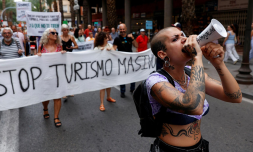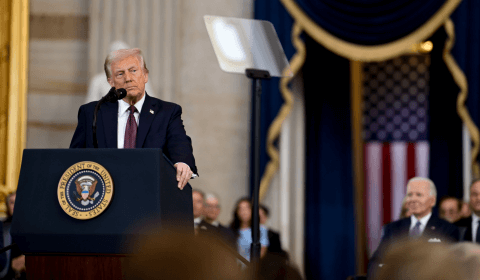Wembley’s three-million-strong crowds bring in noise, traffic, and little benefit to locals. Brent Council’s hotel levy is a smart and overdue response.
Granted, Brent isn’t exactly the first place that springs to mind when you think of tourist taxes. It’s not central London and it’s certainly not the picturesque Cotswolds. But the borough does play host to something few other areas do – a global entertainment destination that pulls in millions – before promptly spitting them back out.
Wembley Stadium and the OVO Arena together draw over three million visitors per year. On any given event day, a sleepy outer London borough becomes a temporary city. Public transport is overrun, streets become littered, and late-night disruption torments residents.
All the while, hotels and promoters cash in, drawing in more and more tourists whilst upending the lives of those who live in the area. It’s Brent’s council who are ultimately left to deal with the aftermath of these tourism spikes, so it’s really no surprise that they’ve now proposed a small visitor levy on hotel stays – £1 to £2 per room, per night – to be reinvested into local services.
Despite this being both a modest and remarkably sensible suggestion, Brent Council has already been on the receiving end of some pretty significant backlash.
As soon as people caught wind of potential spikes in their hotel costs, negativity began sprouting across social media. Coverage of the proposal has framed it as a significant step backwards for tourism in the area – just another form of anti-tourist red tape that will ultimately lead to unrest between locals and visitors.
But it’s crucial to recognise that a tax like this one isn’t aimed at tourists in the cultural sense. This isn’t about penalising backpackers or families on sightseeing trips. It’s about managing the fallout from a specific kind of visitor — one arriving en masse for a sport or music event.
In 2019, I wrote a Budget Scrutiny Panel report setting out options for Brent’s finances. A key rec focussed on creating a small tourist tax.
It’s taken a while(!) but I’m glad this idea has become mainstream with @Brent_Council now seeking to deliver it: https://t.co/kGlT1SmhHG pic.twitter.com/wQrOt25Xqj
— Cllr Matt Kelcher (@mattkelcher) July 10, 2025
Brent is hardly breaking new ground here. Manchester introduced a similar scheme in 2023 which is said to have raised £2.8m in its first year. Edinburgh is expected to follow. Across Europe, these levies are standard, and framed as a means of controlling overtourism.
Brent’s proposal is less about volume and more about volatility, as the Wembley effect isn’t a constant negative influence on locals, but rather an occasional (albeit explosive) one.
Brent has one of the highest poverty rates in London and a chronically overstretched council budget. Public services like street cleaning and policing are already operating on a knife edge, and when major events roll through, the burden on these systems spikes.





















